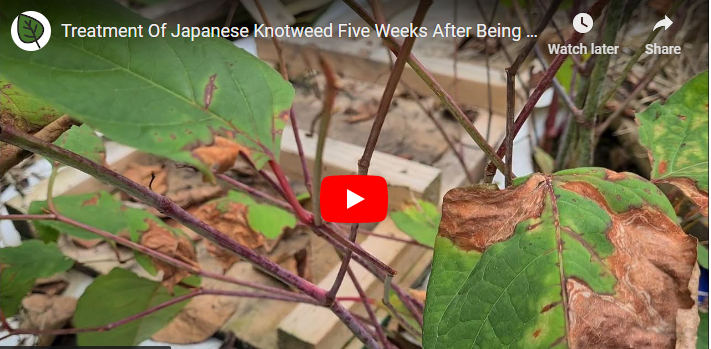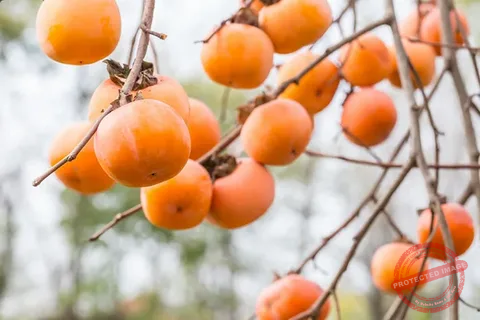Cucumbers are nutritious, delicious, and easy to grow, but they require proper care and nutrients to produce a bountiful harvest. Choosing the right fertilizer for cucumbers can be overwhelming, as there are numerous options available in the market.
Fertilizers provide the essential nutrients that cucumbers require to grow strong and healthy, such as nitrogen, phosphorus, and potassium.
Organic and inorganic fertilizers have their unique benefits, and it is important to consider various factors before selecting the best fertilizer for your cucumbers.
12 Best Fertilizer For Cucumbers
By using fertilizer for your cucumber plants, you can help them grow faster and provide them with essential nutrients.
Whether you prefer organic or inorganic options, there are plenty of choices available to meet your gardening needs.
Read Also: 12 Best Fertilizers For Cassava In Africa
Below, we have compiled a list of the top 12 fertilizers for cucumbers, including both organic and inorganic options.
With the right fertilizer, you can ensure that your cucumber plants thrive and produce a bountiful harvest.
Organic Fertilizers
As a farmer, using organic fertilizer can be a great way to improve the quality and yield of your crops.
Organic fertilizers are made from natural materials such as animal manure, compost, and plant residue, which provide essential nutrients for your plants.
Read Also: 15 Best Fertilizer for Palm Oil Trees Organic & Inorganic: Boosting Growth and Yield
Organic fertilizers can improve soil health and promote microbial activity, leading to healthier and more productive crops.
When using organic fertilizer, it’s important to choose the right type for your crop and soil conditions and apply it at the right time and rate to maximize its benefits.
Some of the best organic fertilizer for cucumber include:
#1. Compost
Compost is a type of organic fertilizer that you can make by decomposing plant and animal materials.
You can use compost to enrich your soil and help your plants grow healthy and strong. It contains a variety of nutrients such as nitrogen, phosphorus, and potassium that are essential for plant growth.
Read Also: 15 Best Fertilizers for Apple and Pear Trees: Organic & Inorganic
You can make compost by collecting yard waste, such as leaves and grass clippings, and food waste, such as vegetable scraps and eggshells, and allowing them to break down naturally.
#2. Manure
Manure is another type of organic fertilizer that you can use to help your plants grow.
It is made up of animal waste, such as cow, horse, or chicken manure, and contains a variety of nutrients that are essential for plant growth, including nitrogen, phosphorus, and potassium.
You can add manure to your soil before planting to enrich it with nutrients or use it as a top dressing around your plants during the growing season.
Read Also: 15 Best Fertilizers for Cassava Farm [Organic & Inorganic]
However, it is important to use well-aged manure to prevent burning your plants and avoid contaminating your crops with harmful pathogens.
#3. Fish Emulsion
Fish emulsion is an organic fertilizer that is made from the by-products of the fish industry. It is a great source of nitrogen and other trace elements that are essential for plant growth.
Read Also: 15 Best Fertilizers for Groundnut [Organic & Inorganic]
Fish emulsion contains about 5% nitrogen, 2% phosphorus, and 2% potassium. It is also rich in amino acids and micronutrients, which are beneficial for plant health. You can apply fish emulsion directly to the soil or use it as a foliar spray.
#4. Bone Meal
Bone meal is an organic fertilizer that is made from ground animal bones. It is a great source of phosphorus and calcium, which are essential for plant growth.
Read Also: 12 Liquid Fertilizers for Maize: Boost Your Crop’s Growth!
Bone meal contains about 3-4% nitrogen, 15-20% phosphorus, and 0-2% potassium. It also contains trace elements such as zinc, copper, and iron, which are beneficial for plant health.
Bone meal can be mixed with the soil before planting or applied as a top dressing.
#5. Blood Meal
This type of organic fertilizer is made from dried animal blood. Blood meal is a form of organic fertilizer that serves as a valuable source of nitrogen crucial for the growth of plants.
When using blood meal, you need to be careful not to apply too much as it can burn your plants.
It is also important to note that blood meal is not suitable for use on acid-loving plants, such as blueberries or azaleas.
Read Also: 15 Best Fertilizer for Tomatoes Organic & Inorganic: Enhancing Growth and Yield
#6. Cottonseed Meal
Cottonseed meal is an organic fertilizer that is made from the remains of cotton seeds after oil extraction. It is a good source of nitrogen, phosphorus, and potassium. Cottonseed meal is ideal for use on vegetables and fruit trees.
However, it is important to note that cottonseed meal can raise the pH level of the soil, so it is not suitable for use on acid-loving plants.
Inorganic Fertilizers
Inorganic fertilizers are made from synthetic materials and you can use them to improve the growth of your plants.
Read Also: Fertilizer Schedule for Lawns: A Comprehensive Guide to Achieving a Lush, Green Yard
They typically contain higher concentrations of specific nutrients like nitrogen, phosphorus, and potassium.
When you use them, make sure to follow the instructions carefully to avoid over-fertilizing your plants.
While they can be effective, keep in mind that inorganic fertilizers do not improve soil health in the same way that organic fertilizers do.
It is important to consider the long-term effects of using inorganic fertilizers on the environment and the soil quality.
#1. Nitrogen Fertilizers (Ammonium Nitrate, Urea, And Ammonium Sulfate)
Nitrogen fertilizers are essential for promoting plant growth, and you can use them to help your crops thrive. Ammonium nitrate, urea, and ammonium sulfate are all nitrogen fertilizers that you can use to fertilize your crops.
Read Also: 15 Best Fertilizers for Tobacco [Organic & Inorganic]
Ammonium nitrate contains 33% nitrogen, urea contains 46% nitrogen, and ammonium sulfate contains 21% nitrogen.
When applied to your cassava plants, these fertilizers can help increase leaf growth, stem growth, and overall yield.
However, you should be cautious when applying nitrogen fertilizers because they can burn your plants if used in excess. Always follow the recommended application rates and safety precautions.
#2. Phosphorus Fertilizers (Superphosphate, Triple Superphosphate, And Diammonium Phosphate)
Phosphorus fertilizers are an essential nutrient for your crops and can be used to enhance the growth of your plants.
Read Also: 15 Best Fertilizers for Watermelon: Organic & Inorganic
Superphosphate is made from rock phosphate and sulfuric acid and has a phosphorus content of about 20%. Triple superphosphate is made from rock phosphate and phosphoric acid and has a phosphorus content of about 46%.
Diammonium phosphate is a soluble fertilizer that is made from ammonia and phosphoric acid and has a phosphorus content of about 18%.
These fertilizers are a good source of phosphorus and can help improve the overall growth and yield of your crops when applied correctly.
#3. Potassium Fertilizers (Potassium Sulfate And Muriate Of Potash)
Potassium fertilizers, such as potassium sulfate and muriate of potash, can be beneficial for your crops.
They are organic and contain potassium, which is an essential nutrient for plant growth. Potassium helps plants build strong roots, resist diseases and pests, and increase fruit quality and yield.
Potassium sulfate contains sulfur, which also promotes plant growth and is necessary for the formation of proteins.
Muriate of potash, on the other hand, contains chloride, which can be harmful to some plants and should be used with caution.
Make sure to follow the recommended application rates for these organic fertilizers to avoid over-fertilization and potential harm to your crops.
#4. Calcium Nitrate
You can use calcium nitrate as a source of nitrogen and calcium for your plants. This organic fertilizer contains two essential nutrients, calcium, and nitrogen, that can help with plant growth and development.
Calcium nitrate also dissolves quickly and easily in water, making it an ideal fertilizer for plants that need a quick nutrient boost.
#5. Epsom Salt
Epsom salt is a popular organic fertilizer that contains magnesium and sulfur. You can use it to improve plant growth, color, and overall health.
Magnesium is an essential nutrient that helps with photosynthesis and chlorophyll production in plants, while sulfur is necessary for the formation of proteins and enzymes.
#6. Magnesium Sulfate
You can use magnesium sulfate, also known as Epsom salt, as an organic fertilizer to provide magnesium and sulfur to your plants.
Magnesium is an essential nutrient that helps with chlorophyll production and photosynthesis, while sulfur is necessary for the formation of proteins and enzymes in plants.
Magnesium sulfate is water-soluble, making it easy to apply to your plants through watering.
Benefits of Applying Fertilizer to Cucumbers
- Improved growth: Fertilizer provides essential nutrients that cucumbers need to grow healthy and strong.
- Increased yield: Fertilizer can increase the yield of cucumbers by providing the necessary nutrients for the plant to produce more fruit.
- Resistance to pests and diseases: Properly fertilized cucumbers are less likely to be attacked by pests and diseases.
- Improved quality: Fertilized cucumbers are usually larger, firmer, and more flavorful than unfertilized ones.
Disadvantages of Applying Fertilizer to Cucumbers
- Overfertilization: Excessive use of fertilizer can lead to overfertilization, which can cause plant damage and decrease yield.
- Environmental pollution: Runoff from fertilized fields can lead to environmental pollution and harm aquatic life.
- Cost: Fertilizer can be expensive, especially if large quantities are required.
- Health concerns: Consuming cucumbers grown with excessive fertilizer use can be harmful to human health.
How to Apply Organic fertilizer to Cucumbers
- Determine the right time to apply the organic fertilizer. The best time to apply organic fertilizer to cucumbers is before planting or during the early stages of growth.
- Choose the right organic fertilizer for cucumbers. Some organic fertilizers that are suitable for cucumbers include compost, manure, fish emulsion, and bone meal.
- Prepare the soil by loosening it with a hoe or tiller.
- Apply the organic fertilizer to the soil surface, avoiding direct contact with the plant stem.
- Work the organic fertilizer into the soil by raking or tilling it in.
- Water the soil thoroughly to help the organic fertilizer penetrate deeper into the soil.
How to Apply Inorganic fertilizer to Cucumbers
- Choose the right inorganic fertilizer for cucumbers. Some examples include 10-10-10 or 20-20-20 fertilizers.
- Determine the right time to apply the fertilizer. The best time to apply inorganic fertilizer to cucumbers is before planting or during the early stages of growth.
- Calculate the right amount of fertilizer to apply based on the fertilizer package instructions and the size of your cucumber plot.
- Scatter the inorganic fertilizer evenly over the soil surface around the plants.
- Lightly work the fertilizer into the soil with a hoe or rake, being careful not to disturb the cucumber roots.
- Water the soil thoroughly to help the fertilizer penetrate deeper into the soil.
Factors to Consider when Choosing Fertilizer for Cucumbers
- Nutrient composition: Look for fertilizers with balanced NPK ratios (nitrogen, phosphorus, and potassium) as cucumbers require all three in adequate amounts.
- Soil type: Consider the pH level of your soil, as certain fertilizers work better in acidic or alkaline soils.
- Plant growth stage: Cucumbers have different nutrient requirements at different stages of growth, so choose fertilizers accordingly.
- Organic vs. inorganic: Decide whether you want to use organic or inorganic fertilizer, taking into account the benefits and drawbacks of each.
When to Apply Fertilizer to Cucumbers
Cucumbers benefit from frequent and consistent fertilization throughout the growing season. Apply fertilizer when planting, and then every three to four weeks thereafter.
Where to Buy Organic Fertilizer
Organic fertilizers can be found at garden centers, nurseries, and online retailers. Look for products that are certified organic, and be sure to read the label for the nutrient content and application instructions.
Is 10 10 10 Fertilizer Good for Cucumbers:
10-10-10 fertilizer can be used for cucumbers, but it’s not always the best choice. This balanced fertilizer contains equal amounts of nitrogen, phosphorus, and potassium, which may not meet the specific needs of cucumbers.
It’s important to consider the soil quality, growth stage of the plant, and other factors when choosing a fertilizer.
Homemade Fertilizer for Cucumbers:
You can make homemade fertilizer for cucumbers using ingredients like compost, manure, fish emulsion, and bone meal.
These natural sources provide the necessary nutrients for cucumber growth, such as nitrogen, phosphorus, and potassium. Making your own fertilizer can also be cost-effective and eco-friendly.
Cucumber Fertilizer NPK:
The ideal NPK (nitrogen, phosphorus, and potassium) ratio for cucumber fertilizer depends on the soil quality and growth stage of the plant.
Generally, cucumbers require more nitrogen during the vegetative stage and more phosphorus and potassium during flowering and fruiting.
A balanced NPK ratio for cucumbers could be 5-10-10, 10-10-10, or 16-16-16, but it’s important to consider other factors as well.
Cucumber Fertilizer Requirements PDF:
Cucumber fertilizer requirements can vary based on the soil quality, climate, and other factors.
A cucumber fertilizer requirements PDF can provide guidance on the recommended NPK ratio, micronutrients, and application rates for different growth stages of the plant.
It’s important to follow the instructions carefully to avoid over or under-fertilization, which can negatively impact the plant growth and yield.
Cucumber Fertilizer Schedule
To ensure the optimal growth and yield of your cucumber plants, it’s essential to follow a fertilizer schedule.
Generally, cucumbers require regular fertilization, with the first application made just after planting and subsequent applications made every two to three weeks throughout the growing season.
Liquid Fertilizer for Cucumbers
Liquid fertilizers are a popular choice for cucumber growers as they can be quickly absorbed by the plant roots. They are applied through irrigation systems, foliar sprays or added to the soil.
Liquid fertilizers can be organic or inorganic and can provide a balanced NPK ratio for cucumber growth.
Fertilizer for Cucumbers in Pots
Cucumbers grown in pots require fertilization just like those grown in the ground. However, since potted plants have limited soil volume, they need more frequent fertilization.
Choose a balanced fertilizer and apply it every two to three weeks during the growing season.
Urea Fertilizer for Cucumber
Urea is a common source of nitrogen for many crops, including cucumbers. However, it’s important to use urea fertilizer in the correct amounts as over-application can lead to leaf burn and reduced yields.
It is best to mix urea with other fertilizers to provide a balanced NPK ratio for optimal cucumber growth.Top of Form
Conclusion
Choosing the right fertilizer for your cucumber plants is essential to ensure their healthy growth and maximum yield. By considering the various factors such as the type of soil, nutrient requirements, and stage of growth, you can pick the best fertilizer that suits your needs.



![How To Buy Farmland For Investment [Farmer’s Guide]](https://agrolearner.com/wp-content/uploads/2024/01/Farmland.jpg)